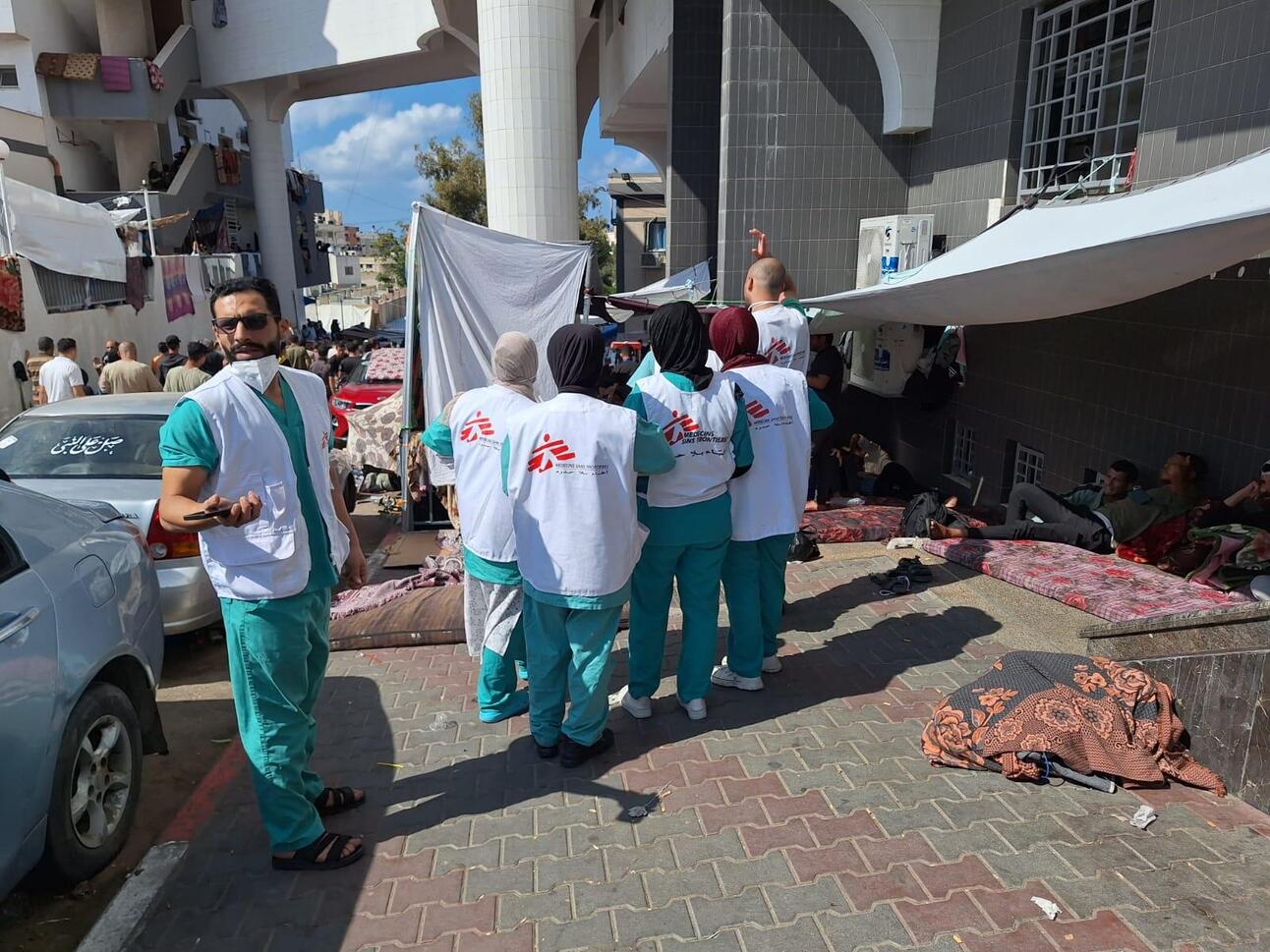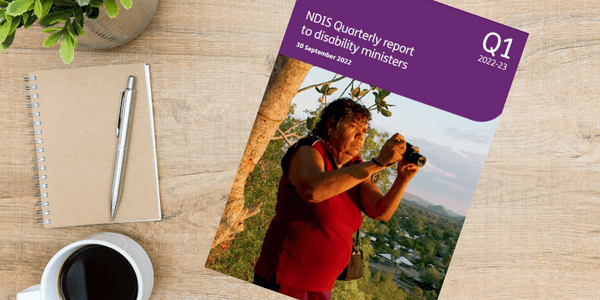The abilityNEWS Daily
The Big Story

Medecins sans Frontieres staff working in Gaza
You can’t escape the trauma of disability in Gaza
Last year, I went to Gaza and was asked to train my colleagues on brief therapies for children to manage trauma. Under bombardment and under siege, the tools we usually have to help children (such as play therapy toys, colour pencils, and paper) were in short supply or had been denied at the border.
In the absence of resources, I racked my brain for simple ways to help keep kids grounded and calm during the terror and panic of bombs exploding and quadcopters shooting incessantly through the night.
All I could think of was the butterfly hug. The child simply wraps their arms around themselves and alternates tapping their hands on their shoulders. It’s a self-soothing, grounding exercise.
I demonstrated this to my team while explaining in depth the theory behind trauma disorders and the mechanism for processing it.
A social worker raised her hand: “ What do we do when they have no arms? Many of the kids we see are amputees.”
I was flooded with shame. All the suggestions I had made to my Palestinian colleagues, such as playing soccer, drawing pictures, and the butterfly hug, were ableist. I had been disability-blind.
Yesterday, I read that Gaza now has more child amputees than anywhere else in the world. I think of them, and the trauma they will carry if this ever ends.
When I think of the senselessness of it all, of those kids who couldn't even shut their ears or hug themselves, it keeps me awake at night. I wrote the words that follow while up late, thinking about who has the power to stop it.
Author’s Note
It’s just dropped! The NDIS Quarterly Report reveals:
Scheme participants numbered 717,001 – an increase of 24,178 or 3.5%.
But the growth in costs was $740 million less than expected last year.
The rate of participants aged 15-24 in the scheme for two years or more who were in paid work has more than doubled (to 23 per cent).
There was a 6 percentage point increase in families and carers reporting paid employment, rising to 52 per cent.
View the NDIS Quarterly Report at Quarterly Reports | NDIS.
The Briefing

The first Quarterly Report (courtesy Summer Foundation)
NDIS Quarterly Report (March 2025) published
by NDIS
The March 2025 Quarterly Report for the National Disability Insurance Scheme has been released, outlining participant growth and key data. Annual cost growth at the end of March was 10.6% with expenses totalling $34.2 billion – $740 million lower than projections in June last year.
New WA scheme to improve employment for people with intellectual disability
by Down Syndrome Australia
DSWA CEO Cassandra Hughes joined the Chamber of Commerce and Industry WA to discuss workplace inclusion for people with intellectual disabilities. The webinar supports a pilot scheme aiming to improve employment outcomes in Western Australia.
PDA urges participants to help make the NDIS stronger
by NDIA
The NDIS is seeking participants, families and carers to share insights through its Participant First engagement group. Members contribute feedback through surveys, interviews and research, helping improve NDIS systems while maintaining confidentiality.
Participant Safeguarding Co-Design Story Workshops
by People with Disability Australia
People with Disability Australia is inviting NDIS participants to join a series of workshops to help shape safeguarding policies. Participants will share lived experiences across four sessions exploring safety, risk, empowerment and rights in the NDIS system.
Best Communications Paper at Web4All Highlights CFA Australia’s Challenges with ATO Accessibility.
by Centre For Accessibility Australia
A research paper exposing difficulties with ATO onboarding forms for blind users earned top honours at the Web4All conference. The study, informed by CFA Australia's challenges, calls for inclusive digital document design within government processes.
The Wrap
AI could be the latest tool in battle against dementia
by Nine
Now, an Australian-US team of researchers has developed an artificial intelligence tool that detects dementia by analysing medical records for hundreds of clues including memory, difficulty performing daily activities, anxiety and unexplained agitation.
Interesting Titbit:
The Economist magazine has rated countries according to the world’s best (and worst) living standards. Australia comes seventh, after Sweden but before Hong Kong, with $58,277 per person. And there’s no proof education is related to earnings. Our children spend more time in school than any country other than Greece (34th in living standards). But over there average earnings are just $35,761.
Quiz: Name one of the core supports funded under the NDIS.
(a) Public transport fares (b) Daily personal care (c) Job search agencies
Answer – The NDIS funds daily personal care under Core Supports to help with everyday activities.
The Diary

